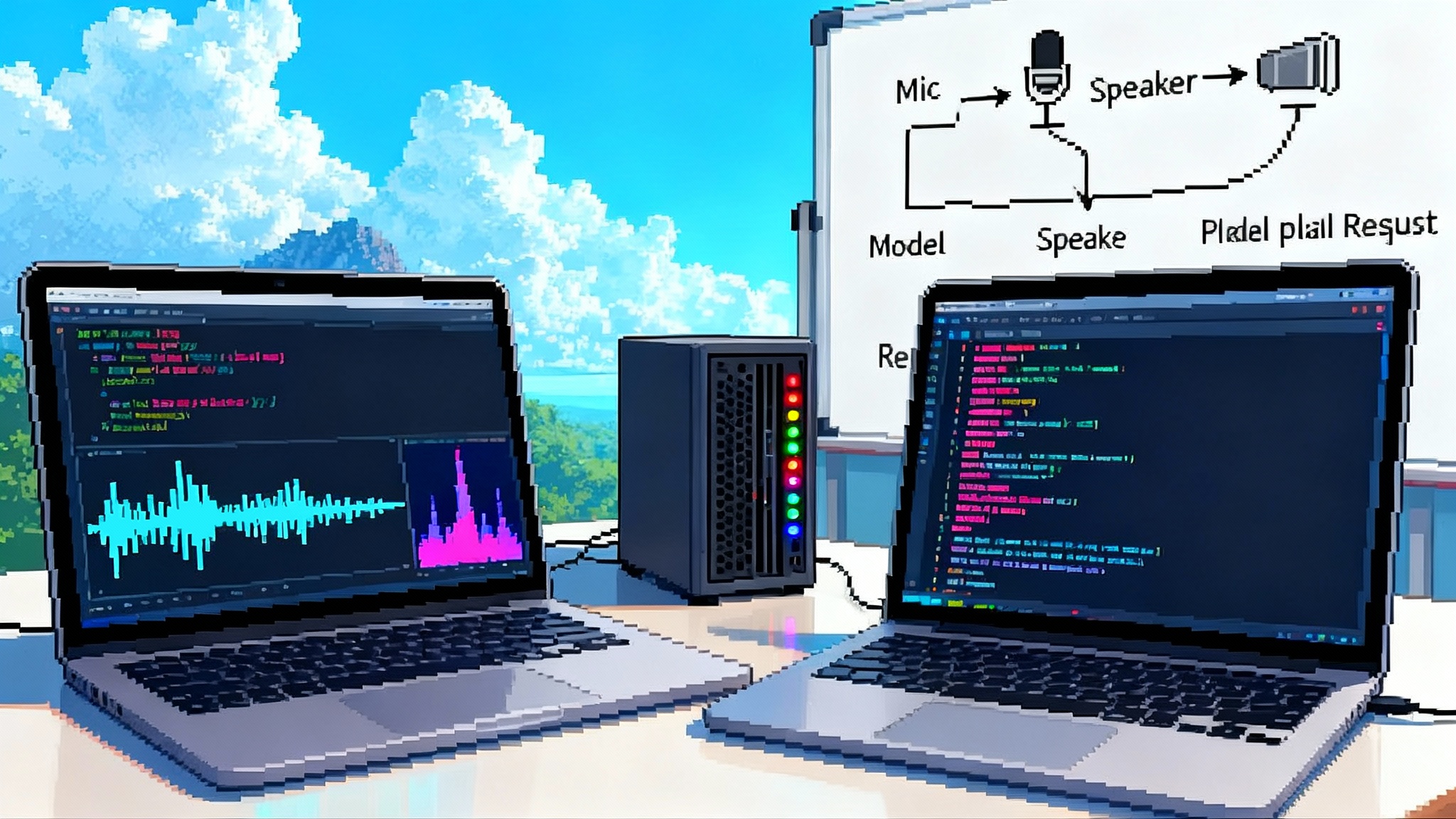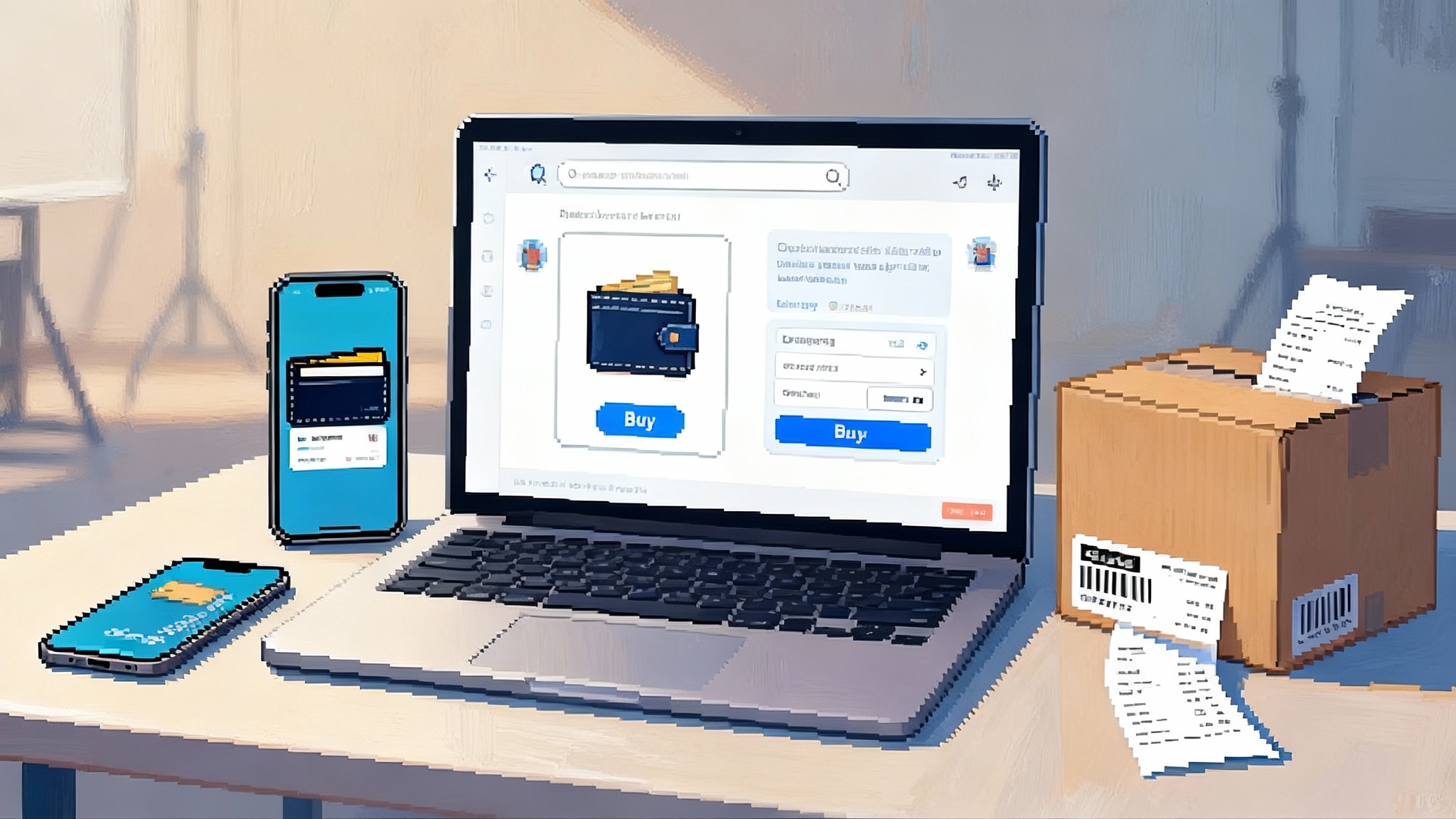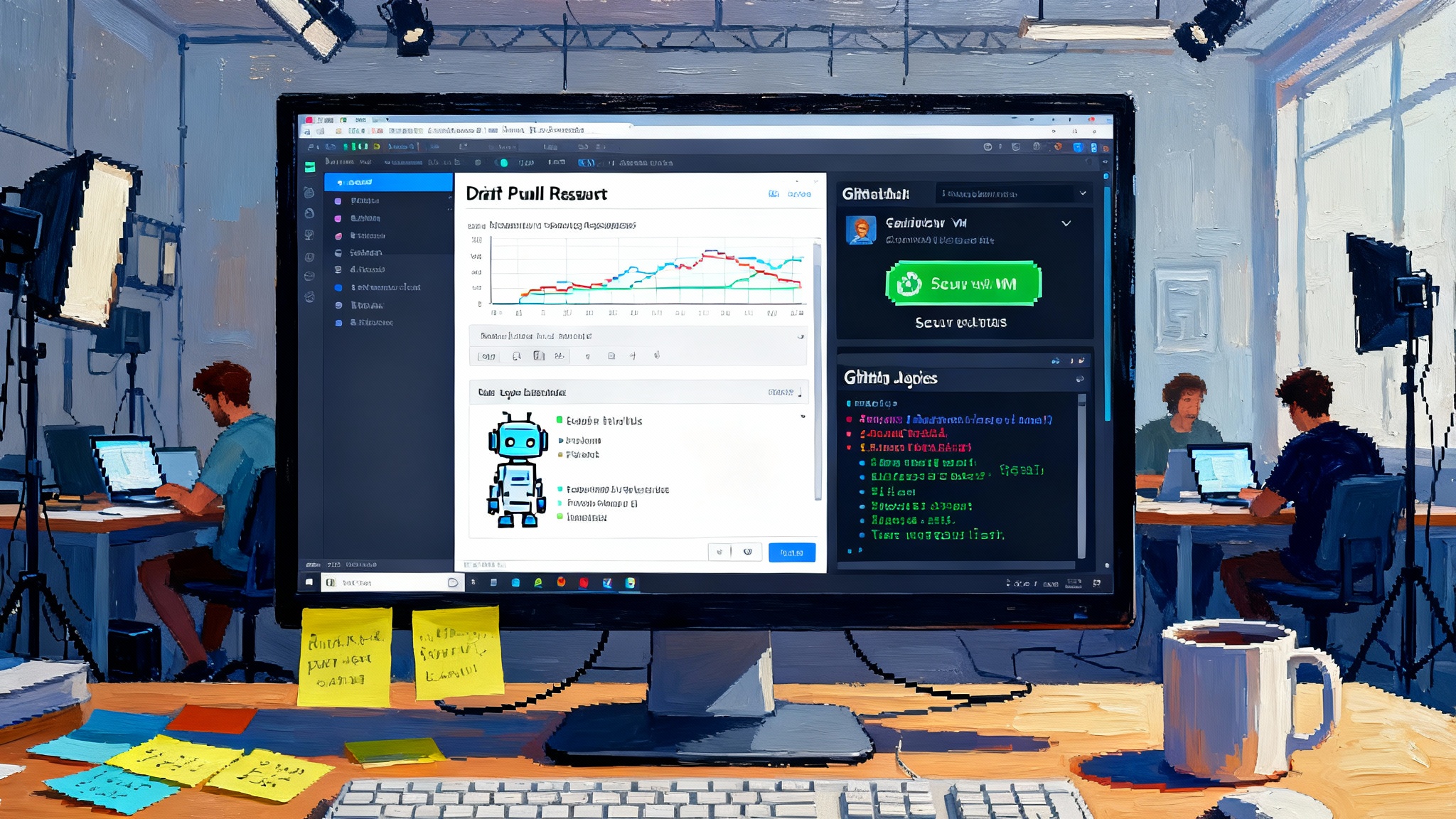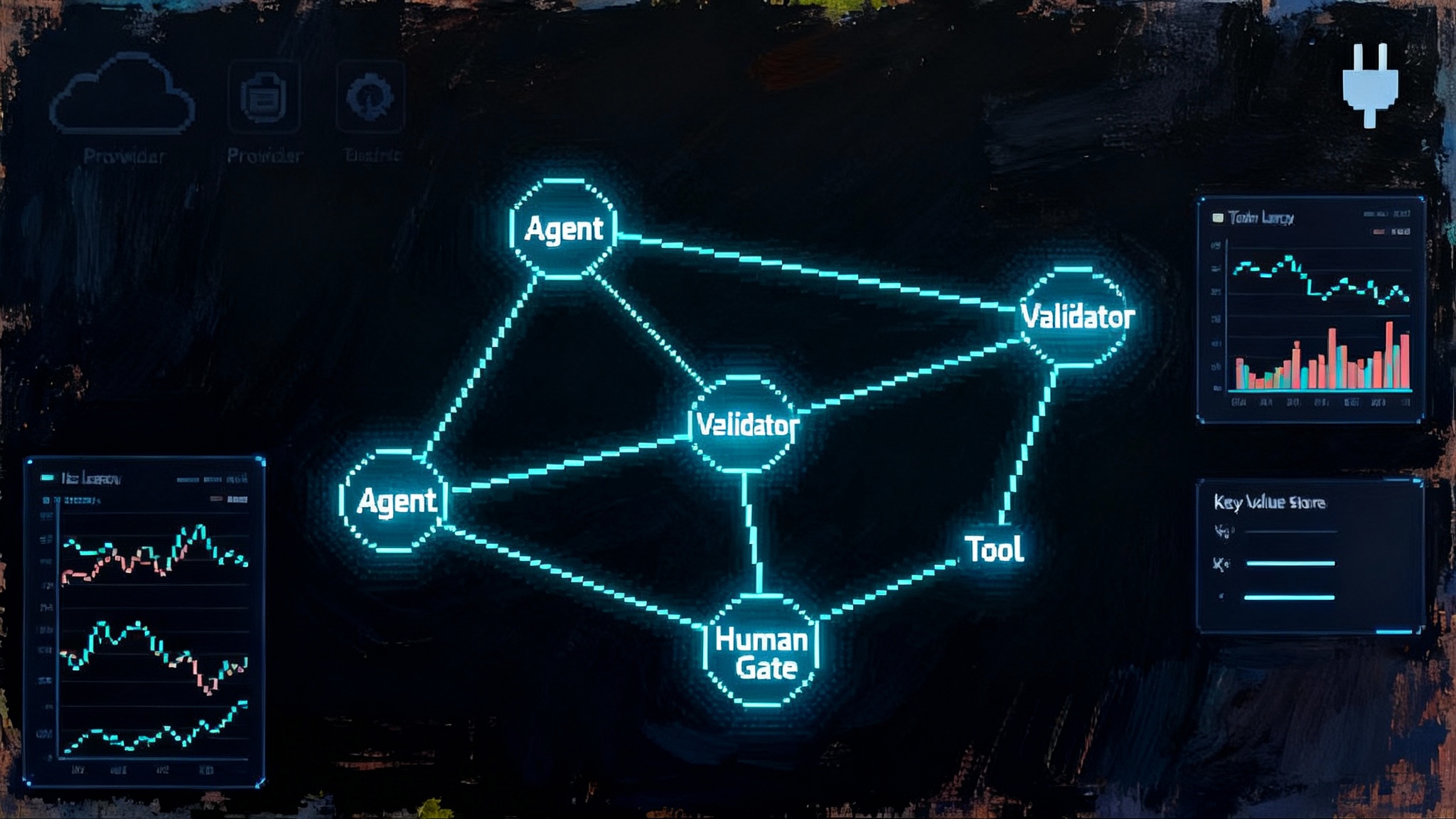Comet Goes Free: The Browser Becomes an Agent Runtime
Perplexity made Comet free and added Background Assistant for Max users. Here is why putting an always on agent inside the browser could reshape search, checkout, and the default stack.
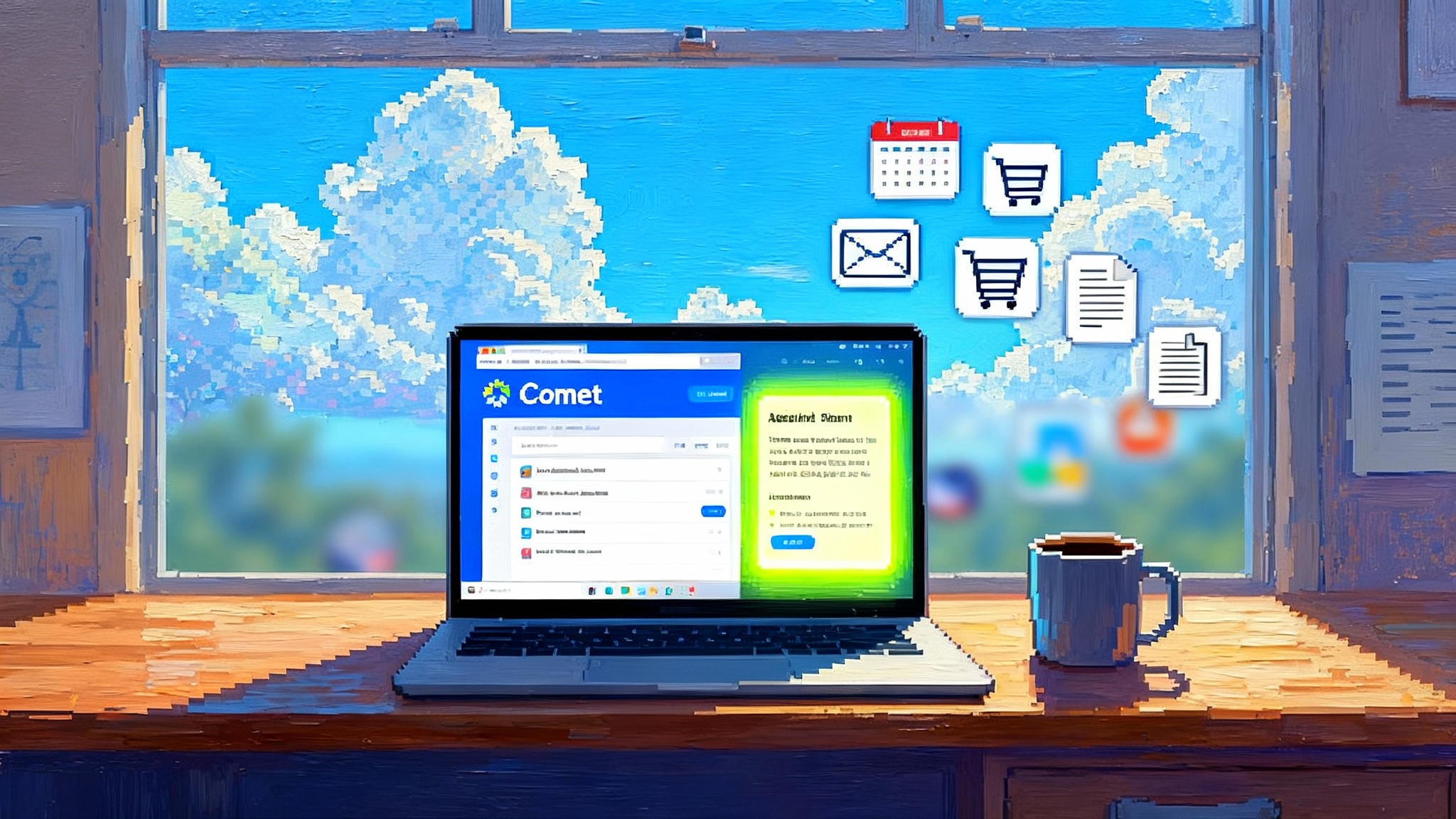
Breaking news: Comet unlocks the agent era
Perplexity has made its AI native browser, Comet, free for everyone worldwide and introduced a Background Assistant for its highest tier. On October 2, 2025, TechCrunch reported Comet now free, confirming general availability and the debut of Background Assistant for paying Max users. Earlier, on July 9, 2025, CNBC covered the July launch to a limited group of Max subscribers at two hundred dollars per month. The flip from limited release to free signals a distribution play for agentic computing packaged as a browser.
This is the plot twist of 2025. You can think of it as putting an always on teammate in the right hand rail of every site you visit. The browser shifts from a passive window into an active workspace that can understand pages, take actions, and keep working after you close a tab.
From viewer to execution layer
For three decades, browsers were binoculars. You looked at pages and clicked links. Comet recasts the browser as a pair of hands. It reads, decides, and acts within the same surface where information lives. That change sounds subtle, but it unlocks three concrete shifts:
-
Tasks move into the browser. Instead of copying text into a separate assistant, the assistant lives beside the page you are on, with page context already loaded. Summaries, extractions, translations, and follow up questions are one step, not five.
-
Agents get distribution. If an agent can orchestrate steps inside the browser, it does not need to convince users to install a new app. It rides along with the default surface people already use hourly. Free access multiplies this effect and aligns with the broader agent runtime standard.
-
Work continues off screen. With Background Assistant, Comet introduces an ability to keep running tasks after you close the tab. That is a meaningful difference from chatbots that go idle when you leave the page.
Think of a travel plan. In a traditional flow, you read six blogs, check flight aggregators, paste itineraries into a doc, and email yourself notes. In an agent runtime, you ask for three options aligned to your dates, constraints, and loyalty numbers. The agent opens pages, extracts relevant constraints, checks calendars, drafts the emails, and keeps reconciling price changes while you get on with your day.
What Background Assistant actually changes
Background Assistant is not just a faster summarizer. It is a scheduler and a finisher. The value shows up in three patterns:
- Long running chores. Price monitoring, waitlist watching, form pre filling that depends on new information arriving later. The assistant can circle back, update a plan, and ping you only when thresholds are hit.
- Multi source reconciliation. Pull terms from a vendor site, dates from your calendar, policies from your company wiki, and package them into a single draft or checklist.
- Page aware actions. Instead of copying a coupon code or a tracking number, the assistant can recognize the fields on the page and propose the next step directly in context.
Today, that depth is gated to the Max tier while the core browser is free. Expect the capability to fan out in two ways: lighter background tasks for all users and developer hooks that let third party agents register tasks the assistant can carry on without constant human supervision. This is where browsers begin to look like operating systems for agent work.
Why free is the strategic hinge
Browsers are marketplaces for defaults. Whoever controls the surface controls the default search, the default assistant, the default payment path, the default extensions. Making Comet free unlocks three distribution flywheels:
- Supply flywheel. Developers can target one surface and reach both free and paid users, no procurement cycle required. That encourages more agent integrations and templates.
- Demand flywheel. Users who were agent curious but price sensitive can test real tasks. Success stories travel by word of mouth because outcomes are tangible. A browser that actually finishes a task is easy to recommend.
- Data flywheel. More sessions and more tasks produce more feedback loops on which prompts work and which page patterns block agents. That hardens the runtime.
The endgame is not simply higher share. It is to reframe buyer intent. If users start a task inside a browser that knows their context and can act, they are less likely to bounce to a traditional search engine. That threatens search referral economics.
Pressure on Chrome and Edge
Google and Microsoft have been weaving generative features into Chrome and Edge for months. Comet’s free release raises the bar in three specific ways:
- Always present sidecar. The assistant is not a detached chatbot or a separate tab; it is a first class resident of the browser frame. This makes help feel ambient, not optional.
- Continuity. Background tasks create perceived momentum. Once a user lets the assistant own a task, switching browsers midstream becomes painful.
- Intent capture. If recommendations, shopping, and booking flow through the assistant’s actions, default search loses steps in the funnel.
Expect responses: tighter assistant panels in Chrome and Edge; more aggressive safe actions like clean page summarization, tab grouping, and on page form suggestions; and new incentives to keep users inside the incumbent ecosystems.
The new economics of search, affiliate, and checkout
If a browser resident agent can read a page, extract a price, and complete a checkout, the path that used to include ten ad slots and four affiliate redirects collapses. Three direct implications follow:
- Search marketing compression. Discovery steps shrink. Fewer query pages means fewer impressions to monetize. Marketers will push budgets toward structured feeds and agent readable catalogs so assistants can present offers without repeated search visits.
- Affiliate shakeup. Traditional affiliate models depend on clickthrough tracking. Agentic flows may not click at all. Merchants will need new attribution standards that accept signed agent receipts or per action tokens. Affiliate networks that build agent first tracking will gain share.
- Publisher adaptation. If an assistant extracts the answer and cites the source, the value exchange must include more than a link. Publishers can lean into depth, tools, and data products that assistants prefer to reference rather than replace. For a deeper look at commerce flows, see our take on agentic checkout and ACP.
This is not the death of search. It is the birth of intent routers that prefer the shortest path to a finished outcome. Browsers that host competent agents become the most powerful routers in the stack.
Near term Comet roadmap: what to expect next
The free release and Background Assistant set the stage. The next six months will likely revolve around three tracks that determine whether Comet is a daily driver or a side project.
- Mobile that feels native. On iOS and Android, the bar is simple: open fast, resume context instantly, voice as a first input, rock solid share sheet capture, and reliable background tasks without draining battery. Expect built in readers for long articles, conversational navigation for accessibility, and one tap saving to Spaces or similar collections.
- App connectors with narrow permissions. Comet already demonstrated the value of connecting to work apps. The next step is a library of connectors with scoped access: read only email headers, read calendars but do not modify without a confirmation, post to Slack only in a sandboxed channel. Agents need typed actions and clear grants so teams can adopt them without handing over the keys. Strong permissioning pairs well with a credential broker layer for agents.
- Guardrails as a feature, not fine print. Per site capability prompts, spending caps, provenance badges on generated text, and a visible activity log that shows what the assistant did on your behalf. Users should be able to rewind changes and block future actions by domain or action type.
Pragmatic adoption playbooks for teams
You do not need to rebuild your stack to take advantage of an agentic browser. Here are concrete playbooks that teams can run in a week.
-
Product and design
- Define two repeatable workflows where on page help saves minutes, not seconds. Example: transform help articles into on page checklists that the assistant can surface at the right step.
- Ship an agent readable mini schema in your product pages. Provide labeled elements for price, availability, shipping cutoff, and return policy so assistants can extract reliably.
-
Marketing and growth
- Rebalance your search plan. Allocate a test budget to structured feeds designed for agents. Measure completed checkouts or booked demos triggered by agent delivered offers, not just clicks.
- Create agent first content. Publish decision kits that combine specs, constraints, and comparisons in digestible blocks the assistant can quote. Include canonical answers that map to common questions customers ask.
-
Sales and success
- Build a guided demo inside the browser. Use Comet to prefill trial accounts, stitch together tutorial steps, and follow up by drafting recap emails that pull exact timestamps from the session.
- Equip reps with on page summarization and objection handling. Store the best responses in a shared library so the assistant can surface them when similar phrases appear on a prospect site or email thread.
-
Operations and finance
- Let the assistant monitor vendor pages for contract renewals, new SLAs, or price changes. Trigger a ticket when thresholds are hit. Require a human confirmation before any spend affecting action.
- Use background tasks to consolidate receipts and statements into a weekly ledger draft. Enforce read only access until rules pass a check.
-
Security and legal
- Set default blocklists for sensitive domains and define high risk actions that always require a second factor. Begin with approve only for form submissions and payments.
- Keep an activity log. If an agent draft contains text drawn from restricted sources, the log should cite the origin and allow redaction before anything is sent.
Competitive landscape: the AI browser war begins
Comet’s free switch turns a series of experiments into a market. Incumbents will not sit still. Expect Chrome to tune its in tab assistant to reduce context switching. Expect Edge to lean on enterprise policy controls and Microsoft 365 integrations. Arc, Brave, Opera, and Vivaldi will differentiate through speed, privacy, or custom sidebars, and will experiment with on page agents of their own.
The differentiators that will matter are not splashy demos. They are the quiet, hard parts: reliability on the long tail of web layouts, respectful permission prompts, deterministic small steps that chain into robust outcomes, and clear accounting of what happened when. Agents that cannot explain themselves will not win trust.
Risks and the right guardrails
Agentic browsing invites new failure modes. Hallucinated actions can be worse than hallucinated prose. Here is how to reduce risk without killing momentum:
- Capability scoping. Ask every time a new site requests action level rights. Make scopes granular: read content, extract structured data, fill forms, submit forms, spend money.
- Spend hygiene. Set per session and per month caps. Require a confirmation for any payment or irreversible change.
- Provenance and trace. Show work. For every action, preserve the chain of pages, fields, and decisions the agent used.
- Human in the loop by default. For the next year, require human review before any high impact step. Use the Background Assistant to prepare options that are easy to approve.
What to watch in the next 90 days
- Mobile beta quality. Does the assistant feel fast and useful on phones, or like a desktop idea forced onto a small screen?
- Connector cadence. Are the top ten work and personal apps supported with narrow, reliable permissions?
- Merchant posture. Do major retailers and booking sites publish agent readable feeds, or do they try to block automated actions? The first mover will set a pattern for the rest.
- Policy clarity. Do enterprises get admin controls that mirror mobile device management? If so, Comet becomes easier to adopt at work.
The bottom line
Making Comet free is not just generosity. It is a wager that the browser is the best vehicle to distribute task doing agents at scale. Background Assistant pushes that idea further by letting work continue after the tab is gone. If users begin to trust a browser to finish jobs, the value shifts away from pages that get attention and toward runtimes that get outcomes.
For teams, the practical move is to treat the browser as a build target. Structure your content for agents, scope permissions tightly, and pick two workflows to automate this quarter. For incumbents, the burden is to match ambient help, continuity, and trust without sacrificing speed and privacy. The winner will not be the flashiest assistant. It will be the quiet workhorse that gets more done with fewer surprises.
The AI browser war has started. The front line is no longer blue links. It is the right hand rail and what keeps running after you close the tab.
